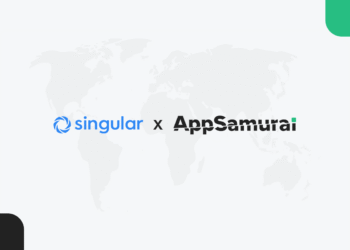Hybrid monetization isn’t just a trend — it’s a structural shift in mobile gaming. Recent industry data reveals that nearly 72% of developers now combine multiple revenue streams, moving beyond the binary choice of IAP or IAA. This pivot reflects a growing sophistication in understanding player behavior: not every user will pay, but every user has value if monetization pathways are aligned with engagement.
In this post, we’ll unpack how hybrid monetization maximizes LTV, highlight lessons from the industry’s top-grossing titles, and examine where innovation is heading. Alongside proven strategies like mixing in-app purchases with rewarded ads, we’ll also spotlight rewarded playtime — a newer model that’s helping apps balance user retention with sustainable revenue.
What is Hybrid Monetization & Why it Matters
Hybrid monetization means combining more than one revenue stream in your game. The most common mix is:
- In-App Purchases (IAP) — buying virtual goods, currency, power-ups, etc.
- In-App Ads (IAA), particularly rewarded video, interstitials, banners, etc.
- Rewarded Playtime / Play-to-Earn, giving rewards for active engagement (time spent, completing milestones).
- Other levers: subscriptions, battle passes, events, live ops, virtual goods, etc.
Why hybrid?
- Diverse revenue helps reduce risk: ad rates fluctuate, IAP conversion varies, etc.
- Non-spenders (or low spenders) can still generate value via ads.
- Rewarded/ad integrations can increase retention and engagement, which in turn improve LTV for spenders as well.
- Newer models like rewarded playtime can turn formerly passive users into more engaged ones, thus increasing the chance of them converting later.
Real-World Examples: Who’s Doing Hybrid (or Partial Hybrid) Well
Here are some top games / publishers that illustrate hybrid or partially hybrid monetization, with data where available. Some are pure IAP heavy, but their strategies or adjacent behavior are instructive.
Monopoly GO! (Scopely)
- Released April 2023.
- Has crossed US$3 billion in revenue within ~473 days after launch.
- By early 2025, reported lifetime revenue ~US$5 billion.
- Downloads: 150+ million. Daily active players ~10 million.
- Monetization strategy: Strong on IAP. Also uses time-limited bundles, starter packs, and pay-for-progress (rolls, “free” rolls but impatient players pay to speed up).
- There are reports that Monopoly GO includes rewarded video ad options: e.g. watching ads to get extra dice, extra currency, more “rolls.”
So it’s not pure IAP-only. Even though many of its revenues come from IAP, the ad components help monetize non-spenders, give players options, and likely contribute to retention by letting players avoid waiting.
Royal Match (Dream Games)
- One of the highest-earning puzzle (match-3) games globally. About US$1.4 billion revenue in 2024.
- Total lifetime over US$3 billion by late 2024.
- Its revenue is almost entirely from IAP. It has been reported to operate with no ads (or at least minimal ad revenue) in the core game.
- Because spenders are plentiful, and its match-3 puzzle genre lends itself well to boosting via boosters, extra lives, power-ups, etc., it works.
Lesson: If your game has high IAP potential, strong core gameplay, and high retention/engagement, leaning heavier on IAP can yield big returns. But this also means you need very strong progression systems, live ops, content, etc.
Playrix (Gardenscapes, Homescapes, Township, etc.)
- Playrix has earned over US$12 billion lifetime across its portfolio.
- Gardenscapes: $3+ billion in player spending lifetime.
- Monetization strategy: Mixed. Primarily IAP, but also ads, especially rewarded video for non-spenders. Live ops, seasonal events, bundles.
- One specific example: Township (a Playrix title) added rewarded video ads, and saw an immediate monthly eCPM uplift of 35%, and overall monthly revenue increase over 28% after integrating rewarded video ads.
Lesson: Even in games dominated by IAP, adding ad-based revenue formats (rewarded ads, etc.) for non-spenders or to augment the IAP spenders (e.g. giving extra moves, boosters via watching ads) can significantly boost ARPU/ARPDAU and LTV.
Subway Surfers (SYBO / Kiloo)
- Released: 2012 (evergreen global title).
- Downloads & Users: One of the most-downloaded mobile games of all time — billions of downloads (industry trackers list it at 2–4+ billion cumulative installs depending on the dataset and date).
- Monetization strategy: Ad-first hybrid — rewarded video is a core mechanic (players opt into ads to revive runs, earn currency, unlock extras), while IAPs (skins, boards, boosters) monetize more engaged users. Opt-in rewarded ads preserve UX while converting volume into revenue.
Idle Miner Tycoon (Kolibri Games)
- Released: 2016. (Kolibri Games)
- Downloads & Users: 100M+ → 150M+ downloads reported across platforms
- Monetization strategy: Balanced hybrid, rewarded video ads are integrated into the core loop (e.g., “Boost!” buttons to watch an ad and double income / speed progress), alongside IAP bundles and VIP/no-ads purchases.
- Rewarded-video implementations increased ARPDAU/eCPMs and improved engagement when placed as optional, progression-focused boosts.
Success Stories: AppSamurai’s Rewarded Playtime
An increasingly interesting piece of the hybrid monetization puzzle is rewarded playtime (sometimes called play-to-earn, though not always in a blockchain sense). AppSamurai has made this part of its offerings. It implies rewarding players based on time or session length, or certain milestones, to both engage them and then nudge toward IAPs.
Some key details:
- In a case study with APPS’ popular title Drill & Collect, AppSamurai ran rewarded playtime campaigns:
- Rewards tied to session length.
- Outcome: 107% D28 ROAS (day 28 return on ad spend) and 2× higher level or area completion rate.
- Another example: Unico Studio’s “Zen Life” puzzle game used the rewarded playtime campaigns and saw +125% ROAS, plus ~15% revenue growth via IAPs atop revenue from ads.
Why this works:
- It rewards commitment: letting users earn for spending time, which increases session lengths and retention.
- Gives non-spenders value, increasing their attachment to the game.
- Creates natural moments to offer in-game purchases (e.g., after a long session, unlocking special items, etc.).
- Good UA / re-engagement tool: campaigns that are based on rewarded playtime may select for more quality users (ones willing to stay and play longer).
Let’s Look at Data/Trends Supporting Hybrid Monetization
1. Hybrid Models Generate Higher Financial Returns
Combining In-App Purchases (IAP) with In-App Advertising (IAA) consistently yields better financial outcomes than using a single model.
- For Android Mid-core Games, a hybrid model achieves a 146% ROAS by Day 90. This significantly outperforms IAP-only models (93% ROAS) and IAA-only models (58% ROAS).
- For Hyper-casual Games, a hybrid approach boosts Day 90 ARPU by 28% compared to an ad-only model.
2. Player Engagement with Ads is Growing
Players are increasingly willing to watch ads, especially when they receive something in return. This makes the ad component of a hybrid model more viable and profitable.
- Global ad engagement, which measures the percentage of users watching at least one ad, saw a 3.2% year-over-year increase in 2024.
- In the United States, 74% of mobile gamers stated they would watch a video ad in exchange for in-game content or rewards.
- Furthermore, 82% of mobile gamers report that they prefer free games supported by ads over paid games that have no ads.
3. Rewarded Ads Can Increase In-App Purchases
Data now confirms that rewarded ads do not detract from IAP revenue. Instead, they can act as a gateway, encouraging non-spending players to eventually make a purchase.
- Internal studies have found that 50% of users reported they would be less satisfied with their app experience if rewarded ads were removed, showing they are seen as a valuable feature.
4. Only a Small Fraction of Players Spend on IAP
Relying solely on in-app purchases means a developer cannot monetize the vast majority of their audience.
- Across the mobile gaming landscape, only 1.83% of players spend money on in-app purchases. A hybrid strategy is the most effective way to generate revenue from the remaining 98% of the player base.
- Despite being driven by a small user base, IAP still accounts for 95% of all user spending in mobile apps, highlighting the importance of catering to spenders while monetizing non-spenders.
5. The “Hybrid-Casual” Genre Confirms the Market Shift
The industry is evolving beyond traditional categories, with the “hybrid-casual” genre emerging as a dominant force. These games blend simple core gameplay with deeper progression systems and a mix of IAP and IAA.
- Leading industry reports identify the “rise in hybrid-casual monetization adoption” as a core market trend, labeling it an “optimized strategy” for growth.
Lessons & Best Practices: How to Use Hybrid Monetization to Boost LTV
| Focus Area | What Works / What to Avoid |
|
Define User Segments |
Distinguish spenders vs non-spenders; heavy players vs casual. Use data to see which segments respond to ads vs IAP. Tailor monetization strategies (ads frequency, offer placement) accordingly. |
|
Reward Appropriately |
Rewarded ads or playtime need to give real perceived value. If rewards feel trivial or forced, they frustrate players rather than retain them. |
|
Balance Frequency & Intrusion |
Too many ads or paywalls too early lead to churn. Even games with heavy IAP components still need to respect the user experience. Interactions like waiting, free reward options, etc., help maintain goodwill. |
|
Use Live Ops / Events |
Regular content updates, limited-time offers, thematic events drive spikes in engagement, retention, and spending. They also provide natural moments to push offers or reward engagement. |
|
Optimize UA & Retargeting with Context |
When acquiring new users, consider campaigns that reward playtime or sessions to attract users more likely to stay. Use retargeting / re-engagement campaigns to bring back lapsed users. |
|
Measure ROI / ROAS Deeply |
Track ROAS over longer windows (Day 28, Day 90) to understand whether hybrid monetization gives sustainable LTV. |
|
Localize & Tailor Offers |
Offers, ad frequency, reward types should be adjusted per geography / user purchasing power. What works in Tier-1 West (USA, Western Europe) may not convert in emerging markets. |
How Rewarded Playtime Fits In (And Why It’s Powerful)
AppSamurai’s Rewarded Playtime model is particularly useful as an augmentation to hybrid monetization. Here’s why:
- Extends session length and engagement, especially among non-spenders. More sessions mean more opportunity for both ad impressions and IAP conversion.
- Improves ROAS and quality of UA: In the Drill & Collect case, rewarded session-based UA gave ROAS well above target, plus better early progression metrics (area or level‐completion).
- Creates natural funnels into IAP: After players invest time and see benefit / rewards, they are more likely to spend. Or, rewarded playtime can unlock or tease content that spenders can fully access.
- Helps with retention / dailies etc. because it ties rewards to continuous behavior (time / milestones), which can help build habit loops.
Putting It All Together: A Hybrid Monetization Stack Template
Here’s a hypothetical template for a hybrid monetization stack based on lessons above. You can adjust depending on your genre, region, audience.
- Free-to-Download, no paywall upfront
- Rewarded Playtime / session-based reward mechanics — give players something for spending time (or completing milestones), possibly ad-based rewards.
- Ad monetization for non-spenders / occasional spenders: rewarded video first; occasional interstitials; low frequency banners where appropriate.
- IAP offerings:
- Consumables (currency, boosters)
- Time-savers (skip waits)
- Bundles / starter packs (especially early)
- Premium content / cosmetics / unlockables
- Live ops / seasonal / events to spike engagement and push high value IAPs.
- Optional subscription or battle pass, if fits genre: ongoing content / perks.
- Testing & iteration: track metrics (ARPDAU, retention, churn, ROAS at D7, D28, D90) and adjust ad frequency, offer placement, rewards.
Final Thoughts
The shift to hybrid monetization is a fundamental redefinition of value in mobile gaming, moving beyond the binary of ‘spenders’ versus ‘ad viewers.’ The most successful studios treat their user base like a balanced portfolio, where IAPs drive high growth while rewarded ads provide stability.
Innovations like rewarded playtime introduce a powerful new asset where engagement itself becomes the currency, activating the non-spending majority within the game’s economy.
The ultimate lesson is that maximizing LTV is no longer about hunting for whales; it’s about building a sustainable economic engine that converts every player’s time and loyalty into long-term success.

















